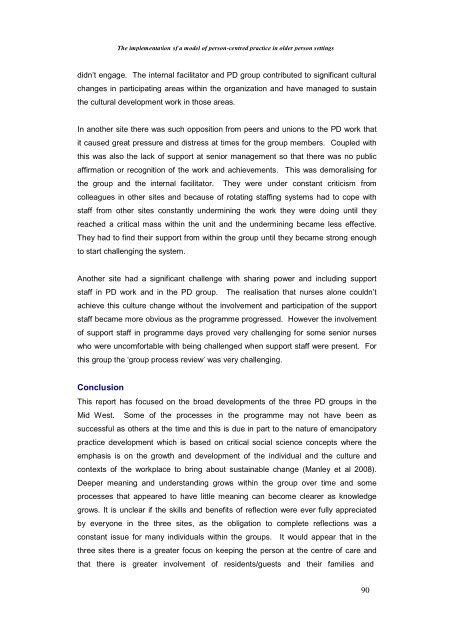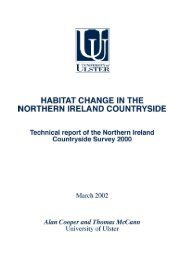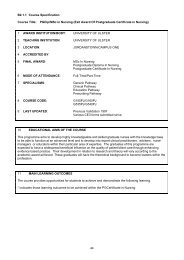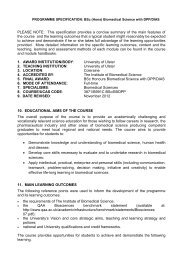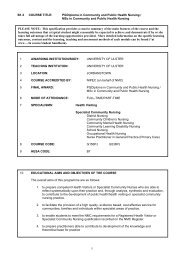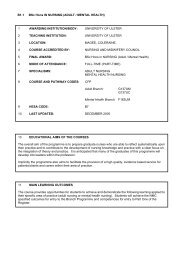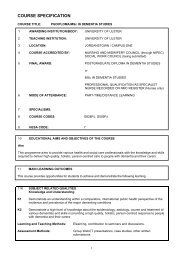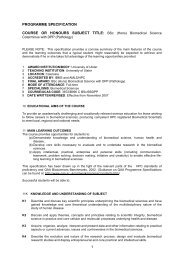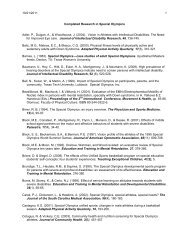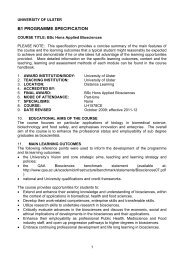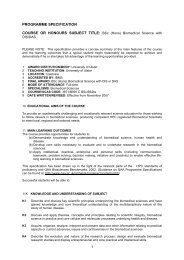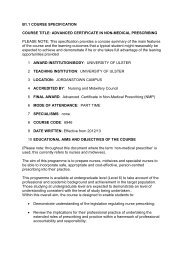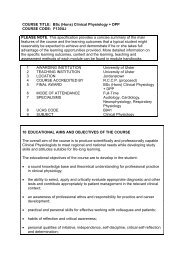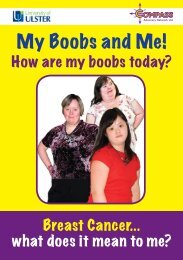The Implementation of a Model of Person-Centred Practice In Older ...
The Implementation of a Model of Person-Centred Practice In Older ...
The Implementation of a Model of Person-Centred Practice In Older ...
You also want an ePaper? Increase the reach of your titles
YUMPU automatically turns print PDFs into web optimized ePapers that Google loves.
<strong>The</strong> implementation <strong>of</strong> a model <strong>of</strong> person-centred practice in older person settings<br />
didn’t engage. <strong>The</strong> internal facilitator and PD group contributed to significant cultural<br />
changes in participating areas within the organization and have managed to sustain<br />
the cultural development work in those areas.<br />
<strong>In</strong> another site there was such opposition from peers and unions to the PD work that<br />
it caused great pressure and distress at times for the group members. Coupled with<br />
this was also the lack <strong>of</strong> support at senior management so that there was no public<br />
affirmation or recognition <strong>of</strong> the work and achievements. This was demoralising for<br />
the group and the internal facilitator. <strong>The</strong>y were under constant criticism from<br />
colleagues in other sites and because <strong>of</strong> rotating staffing systems had to cope with<br />
staff from other sites constantly undermining the work they were doing until they<br />
reached a critical mass within the unit and the undermining became less effective.<br />
<strong>The</strong>y had to find their support from within the group until they became strong enough<br />
to start challenging the system.<br />
Another site had a significant challenge with sharing power and including support<br />
staff in PD work and in the PD group. <strong>The</strong> realisation that nurses alone couldn’t<br />
achieve this culture change without the involvement and participation <strong>of</strong> the support<br />
staff became more obvious as the programme progressed. However the involvement<br />
<strong>of</strong> support staff in programme days proved very challenging for some senior nurses<br />
who were uncomfortable with being challenged when support staff were present. For<br />
this group the ‘group process review’ was very challenging.<br />
Conclusion<br />
This report has focused on the broad developments <strong>of</strong> the three PD groups in the<br />
Mid West. Some <strong>of</strong> the processes in the programme may not have been as<br />
successful as others at the time and this is due in part to the nature <strong>of</strong> emancipatory<br />
practice development which is based on critical social science concepts where the<br />
emphasis is on the growth and development <strong>of</strong> the individual and the culture and<br />
contexts <strong>of</strong> the workplace to bring about sustainable change (Manley et al 2008).<br />
Deeper meaning and understanding grows within the group over time and some<br />
processes that appeared to have little meaning can become clearer as knowledge<br />
grows. It is unclear if the skills and benefits <strong>of</strong> reflection were ever fully appreciated<br />
by everyone in the three sites, as the obligation to complete reflections was a<br />
constant issue for many individuals within the groups. It would appear that in the<br />
three sites there is a greater focus on keeping the person at the centre <strong>of</strong> care and<br />
that there is greater involvement <strong>of</strong> residents/guests and their families and<br />
90


